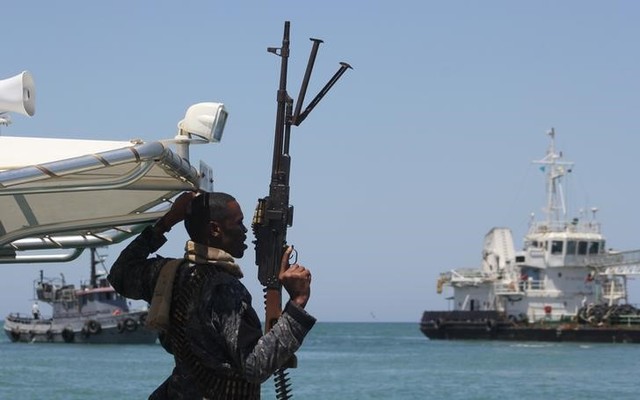Naval cut and unchanged conditions in Somalia risks return of piracy-watchdog


The political and economic conditions which allowed and encouraged piracy off the coast of Somalia less than a decade ago still remain unattended to, a piracy watchdog has said adding coupled with declining vigilance by the shipping community and a draw- down of naval patrols the resurgence of piracy is real.
In its annual report recently, Oceans Beyond Piracy (OBP) said the existing conditions in Somalia ‘provide the impetus for piracy and potentially other maritime crimes’.
“The tumultuous socio-political environment in Somalia that initially allowed piracy to flourish remains largely unchanged, particularly in the original pirate safe havens,” said OBP.
OBP says deficiencies in governance, lack of economic opportunity and unstable security situation persists in Somalia risking giving way for a return to piracy which at its peak in 2012 costs upwards of $7 billion.
Failure to build local maritime capacity despite declining cost of anti-piracy could also be an undoing on the part of international stakeholders, OBP says. “While spending towards at sea counter-piracy efforts has declined in recent years, very little funding has shifted towards building regional maritime security capacity.”
The report also notes that despite the decline in piracy off the coast of Somalia in the recent years, the cost of countering incidents off the Somali waters are rising. In 2015, OBP says economic cost of Somali piracy was $1.3 billion but 2016 saw a spike heading $1.7.
OBP also warns the reduction of naval surveillance and resources towards counter-piracy could create an ample environment for the return of pirates.
“OBP has noted that pirate groups originating in Somalia continue to possess capability and intent to carry out attacks against merchant vessels, and resources to counter piracy in the region continue to dwindle; therefore, OBP believes that a resurgence of piracy remains a possibility.”
NATO wound up its six year mission in the Western Indian Ocean region last November leaving behind the EU funded EUNAVFOR Atalanta as the main mission alongside individual countries and private forces hired by shipping companies.
In 2016, one seafarer was killed, 16 sustained injuries, and 17 were threatened during attacks in 27 incidents of piracy and armed robbery at sea affecting 545 seafarers, the report notes.
Pirates and fishermen told Goobjoog News in March they were pushed by foreign trawlers fishing illegally in their water and denying them rights to fish.
“We are fishermen who decided to take up arms and defend ourselves. The resources of our ocean are being depleted by these ships. We will clear them,” one of pirates aboard MT ARI 13 hijacked mid-March told Goobjoog News.